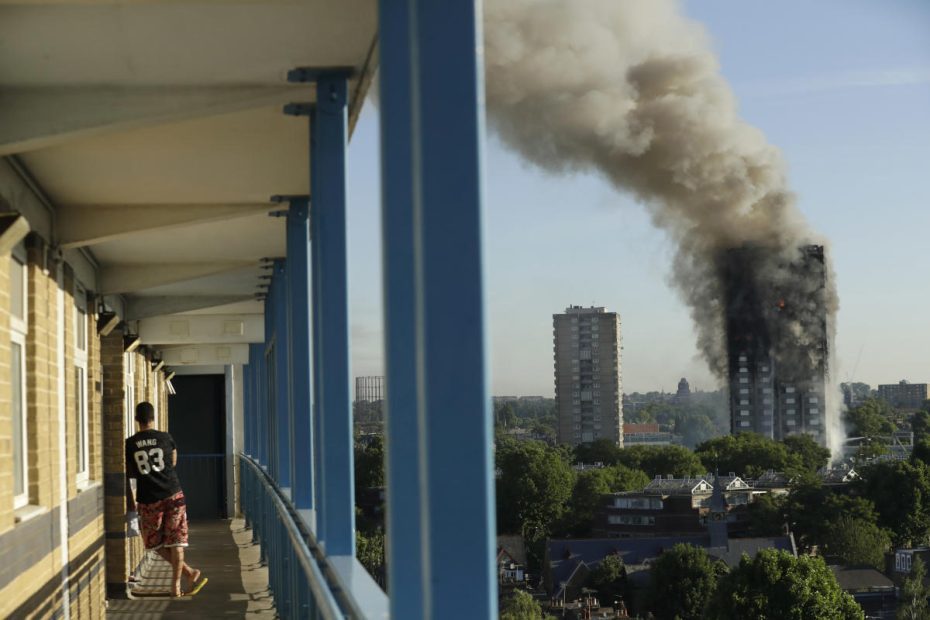LONDON (AP) — Seven years after a fire in a London skyscraper killed 72 people, a full-scale public inquiry will be held into the failings and mistakes that turned a small fire in a flat's kitchen into the deadliest blaze on British soil since World War II.
Inquiry chairman Martin Moore-Bick, a retired judge, will on Wednesday present the findings of a six-year investigation into how building defects, poor enforcement of safety standards and failures by emergency services contributed to the shocking death toll in the Grenfell Tower fire.
The final report could give survivors some answers they've long sought — but it won't prosecute those responsible. Criminal charges will be stayed until the investigation is complete.
Sandra Ruiz, whose 12-year-old niece, Jessica Urbano Ramirez, died in the fire, said: “To me, there is no justice without people going behind bars.”
“Our lives were destroyed that night. People need to be held accountable,” she said. “People who made decisions that put profit above the safety of others need to be behind bars.”
The fire broke out in the early hours of June 14, 2017 in a fourth-floor apartment and spread like a burning fuse through the 25-story building. The fire was caused by flammable cladding panels on the tower's exterior walls.
The tragedy shocked the country and raised questions about the poor safety regulations and other failings by government officials and companies that contributed to so many deaths.
It also prompted soul-searching about inequality in Britain. Grenfell was a council housing estate in one of London’s wealthiest neighbourhoods — a stone’s throw from the expensive boutiques and posh homes of Notting Hill — and many of the victims were working-class people with immigrant roots. The victims came from 23 countries and included taxi drivers and architects, a poet, an acclaimed young artist, pensioners and 18 children.
The investigation, announced by the government the morning after the fire, included more than 300 public hearings and about 1,600 witness statements.
An initial report published in 2019, which looked at what happened the night of the fire, criticized the fire service for telling residents to stay in their apartments and wait for rescue. The advice was changed almost two hours after the fire broke out, too late for many on the upper floors to escape.
Moore-Bick said Wednesday's final report would examine “the decisions that led to the installation of a highly combustible cladding system on a high-rise residential building.”
Grenfell Tower was covered in aluminium and polyethylene cladding during a renovation: a layer of foam insulation topped with two aluminium sheets, sandwiched between a layer of polyethylene, a flammable plastic polymer that melts and drips when exposed to heat.
Following the fire, the UK government banned metal composite cladding panels from all new buildings and ordered the removal of similar flammable cladding from hundreds of tower blocks across the country. But it is an expensive job and work has not been carried out on some apartment buildings amid wrangling over who should pay for it.
The inquiry's lead lawyer, Richard Millett, has said organisations including the companies that made the cladding, the contractor responsible for renovating the building and the local authority engaged in a “blame-passing carousel” in an attempt to blame others for the fire.
The ruined tower, which stood like a black gravestone on the west London skyline for months after the fire, still stands, now covered in a white sheet. A green heart and the words “Grenfell forever in our hearts” are written at the top.
Survivors and relatives fear the report will spread blame too widely to punish anyone. Police are investigating dozens of individuals and companies and are considering charges including corporate and individual manslaughter. But they say prosecutions must wait until the investigation is complete and are unlikely to happen before the end of 2026.
“We have been denied justice for seven years and now we are being told there will be several more years to come,” the Grenfell Next of Kin group said in a statement. “Our realistic concern is that the 'web of blame' presented by the inquiry will be a barrier to our justice.”

